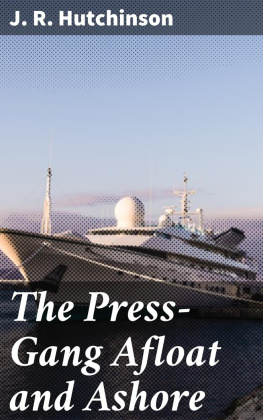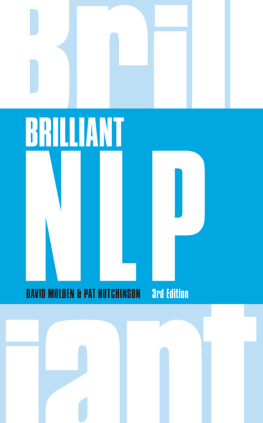CHAPTER I. HOW THE PRESS-GANG CAME IN.
Table of Contents
The practice of pressing menthat is to say, of taking by intimidation or force those who will not volunteerwould seem to have been world-wide in its adoption.
Wherever man desired to have a thing done, and was powerful enough to insure the doing of it, there he attained his end by the simple expedient of compelling others to do for him what he, unaided, could not do for himself.
The individual, provided he did not conspire in sufficient numbers to impede or defeat the end in view, counted only as a food-consuming atom in the human mass which was set to work out the purpose of the master mind and hand. His face value in the problem was that of a living wage. If he sought to enhance his value by opposing the master hand, the master hand seized him and wrung his withers.
So long as the compelling power confined the doing of the things it desired done to works of construction, it met with little opposition in its designs, experienced little difficulty in coercing the labour necessary for piling its walls, excavating its tanks, raising its pyramids and castles, or for levelling its roads and building its ships and cities. These were the commonplace achievements of peace, at which even the coerced might toil unafraid; for apart from the normal incidence of death, such works entailed little danger to the lives of the multitudes who wrought upon them. Men could in consequence be procured for them by the exercise of the minimum of coercionby, that is to say, the mere threat of it.
When peace went to the wall and the pressed man was called upon to go to battle, the case assumed another aspect, an acuter phase. Given a state of war, the danger to life and limb, the incidence of death, at once jumped enormously, and in proportion as these disquieting factors in the pressed man's lot mounted up, just in that proportion did his opposition to the power that sought to take him become the more determined, strenuous, and undisguised.
Particularly was this true of warlike operations upon the sea, for to the extraordinary and terrible risks of war were here added the ordinary but ever-present dangers of wind and wave and storm, sufficient in themselves to appal the unaccustomed and to antagonise the unwilling. In face of these superlative risks the difficulty of procuring men was accentuated a thousand-fold, and with it both the nature and the degree of the coercive force necessary to be exercised for their procuration.
In these circumstances the Ruling Power had no option but to resort to more exigent means of attaining its end. In times of peace, working through myriad hands, it had constructed a thousand monuments of ornamental or utilitarian industry. These, with the commonweal they represented, were now threatened and must be protected at all costs. What more reasonable than to demand of those who had built, or of their successors in the perpetual inheritance of toil, that they should protect what they had reared. Hitherto, in most cases, the men required to meet the national need had submitted at a threat. They had to live, and coercive toil meant at least a living wage. Now, made rebellious by a fearful looking forward to the risks they were called upon to incur, they had to be met by more effective measures. Faced by this emergency, Power did not mince matters. It laid violent hands upon the unwilling subject and forced him, nolens volens, to sail its ships, to man its guns, and to fight its battles by sea as he already, under less overt compulsion, did its bidding by land.
It is with this phase of pressingpressing open, violent and unashamedthat we purpose here to deal, and more particularly with pressing as it applies to the sea and sailors, to the Navy and the defence of an Island Kingdom.
At what time the pressing of men for the sea service of the Crown was first resorted to in these islands it is impossible to determine. There is evidence, however, that the practice was not only in vogue, but firmly established as an adjunct of power, as early as the days of the Saxon kings. It was, in fact, coeval with feudalism, of which it may be described as a side-issue incidental to a maritime situation; for though it is impossible to point to any species of fee, as understood of the tenure of land, under which the holder was liable to render service at sea, yet it must not be forgotten that the great ports of the kingdom, and more especially the Cinque Ports, were from time immemorial bound to find ships for national purposes, whenever called upon to do so, in return for the peculiar rights and privileges conferred upon them by the Crown. The supply of ships necessarily involved the supply of men to sail and fight them, and in this supply, or, rather, in the mode of obtaining it, we have undoubtedly the origin of the later impress system.
With the reign of John the practice springs into sudden prominence. The incessant activities of that uneasy king led to almost incessant pressing, and at certain crises in his reign commission after commission is directed, in feverish succession, to the sheriffs of counties and the bailiffs of seaports throughout the kingdom, straitly enjoining them to arrest and stay all ships within their respective jurisdictions, and with the ships the mariners who sail them. [Footnote: By a plausible euphemism they were said to be "hired." As a matter of fact, both ships and men were retained during the royal pleasure at rates fixed by custom.] No exception was taken to these edicts. Long usage rendered the royal lien indefeasible. [Footnote: In more modern times the pressing of ships, though still put forward as a prerogative of the Crown, was confined in the main to unforeseen exigencies of transport. On the fall of Louisburg in 1760, vessels were pressed at that port in order to carry the prisoners of war to France (Admiralty Records 1. 1491Capt. Byron, 17 June 1760); and in 1764, again, we find Capt. Brereton, of the Falmouth, forcibly impressing the East India ship Revenge for the purpose of transporting to Fort St. George, in British India, the company, numbering some four hundred and twenty-one souls, of the Siam, then recently condemned at Manilla as unseaworthy.Admiralty Records 1. 1498Letters of Capt. Brereton, 1764.]
In the carrying out of the royal commands there was consequently, at this stage in the development of pressing, little if any resort to direct coercion. From the very nature of the case the principle of coercion was there, but it was there only in the bud. The king's right to hale whom he would into his service being practically undisputed, a threat of reprisals in the event of disobedience answered all purposes, and even this threat was as yet more often implied than openly expressed. King John was perhaps the first to clothe it in words. Requisitioning the services of the mariners of Wales, a notoriously disloyal body, he gave the warrant, issued in 1208, a severely minatory turn. "Know ye for certain," it ran, "that if ye act contrary to this, we will cause you and the masters of your vessels to be hanged, and all your goods to be seized for our use."
At this point in the gradual subjection of the seaman to the needs of the nation, defensive or the contrary, we are confronted by an event as remarkable in its nature as it is epoch-making in its consequences. Magna Charta was sealed on the 13th of June 1215, and within a year of that date, on, namely, the 14th of April then next ensuing, King John issued his commission to the barons of twenty-two seaports, requiring them, in terms admitting of neither misconstruction nor compromise, to arrest all ships, and to assemble those ships, together with their companies, in the River of Thames before a certain day. [Footnote: Hardy,














